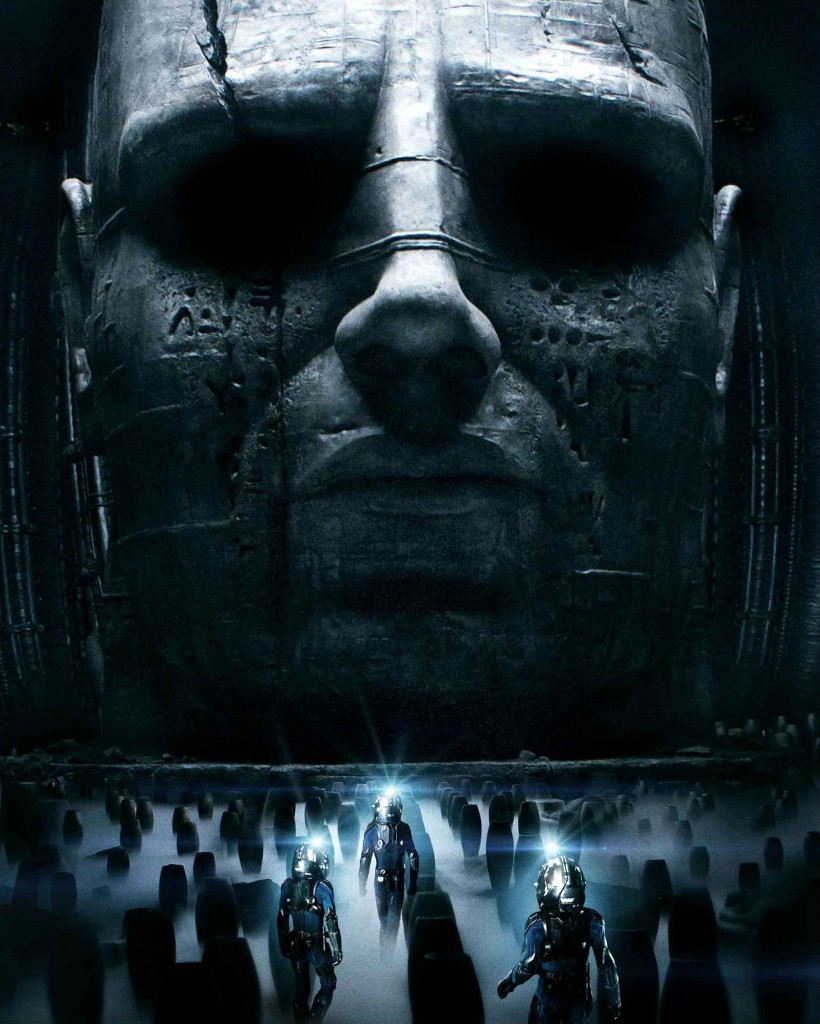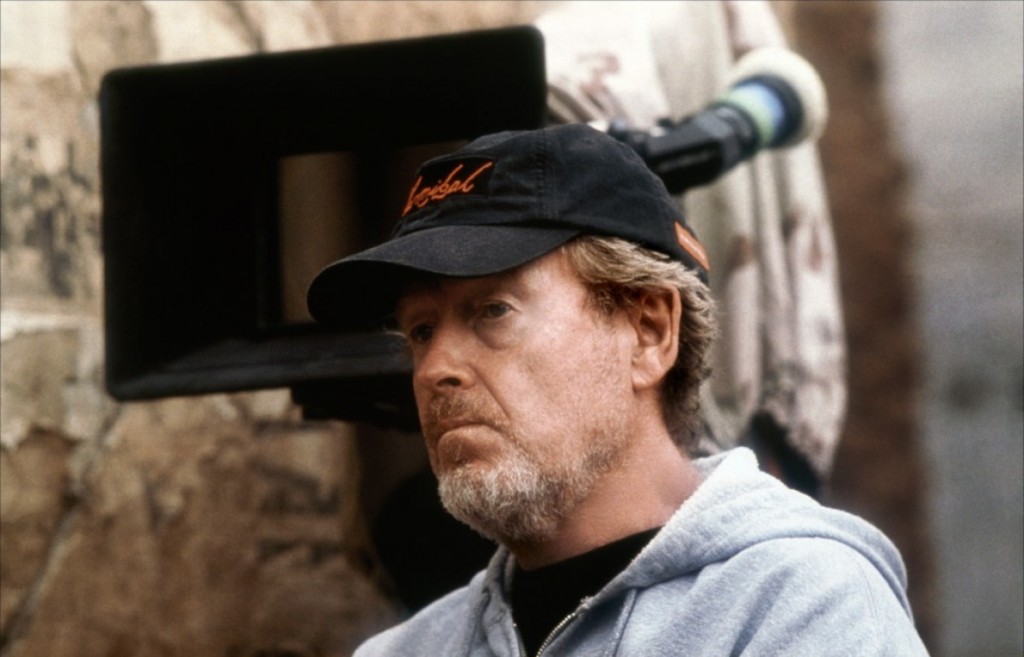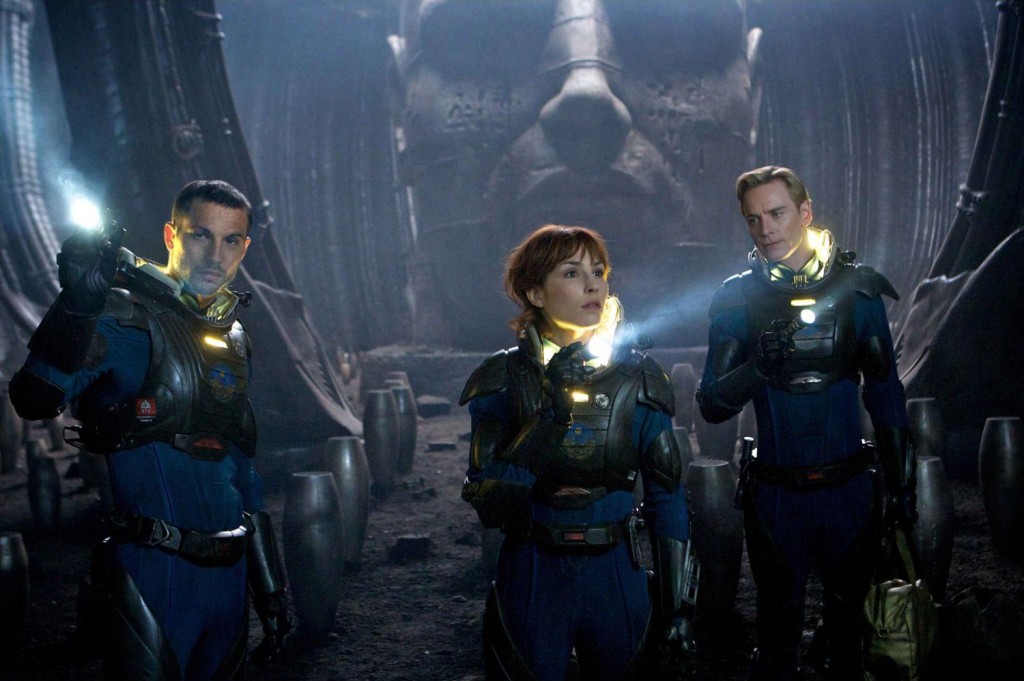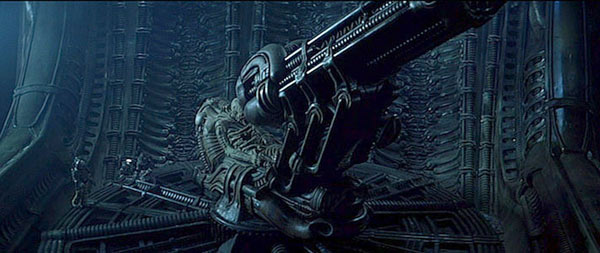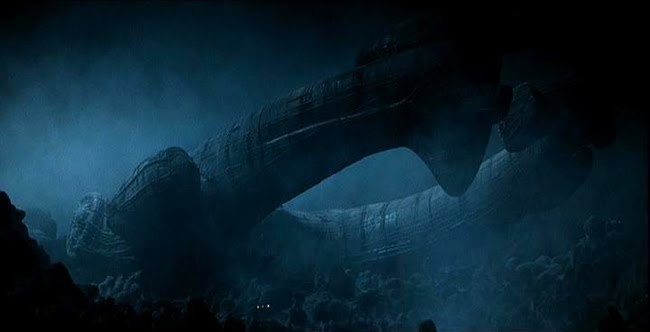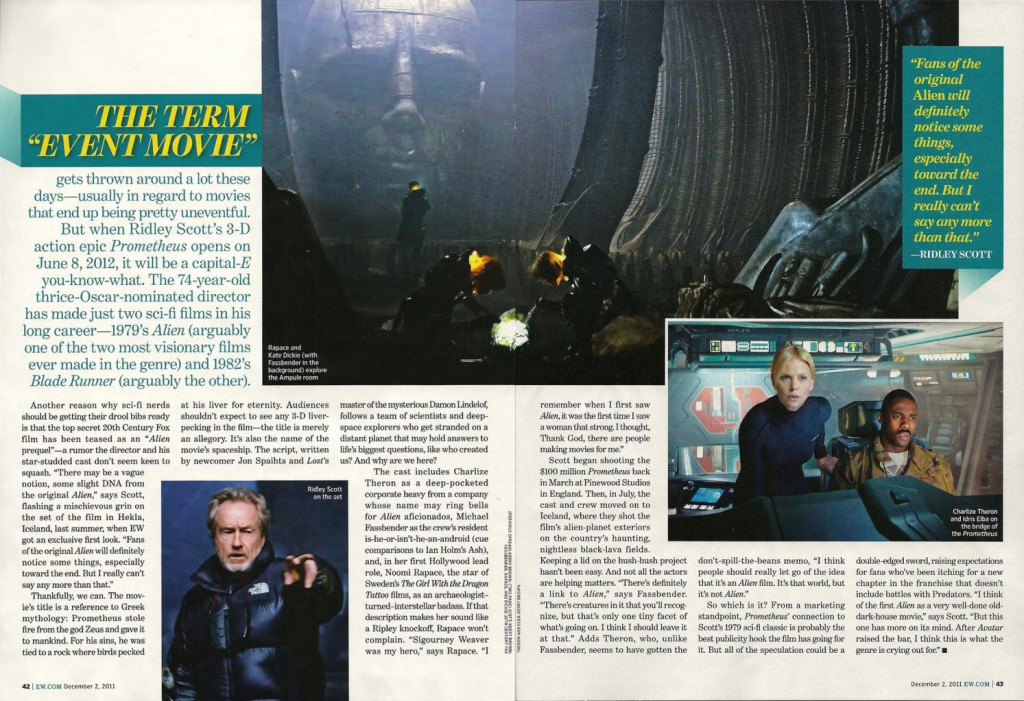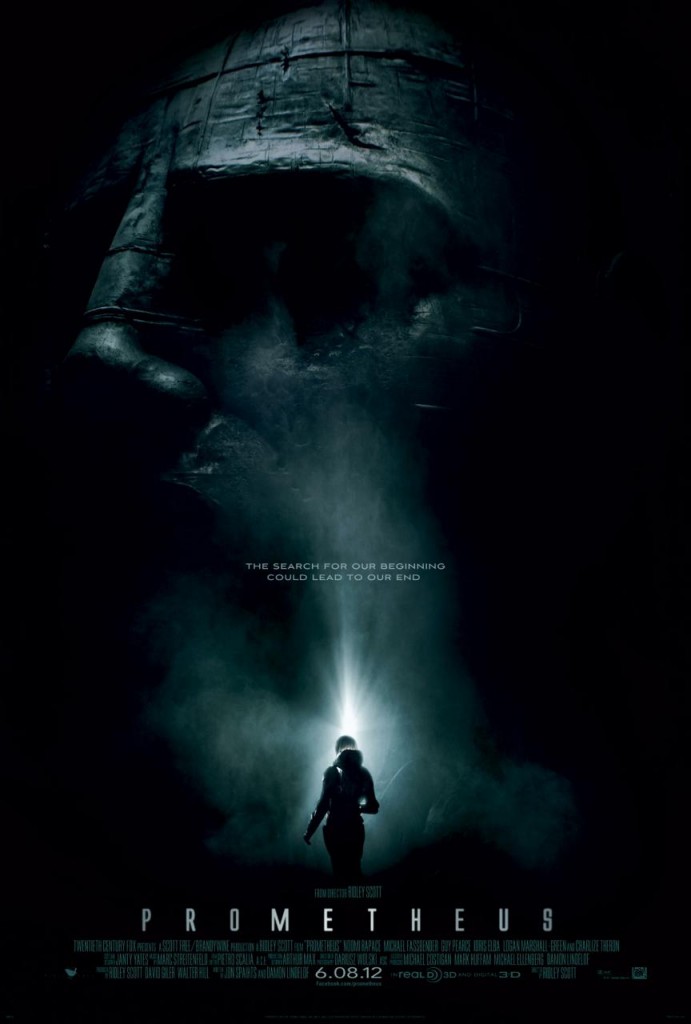SELLING THE SIZZLE (Of The Fire From Olympus)
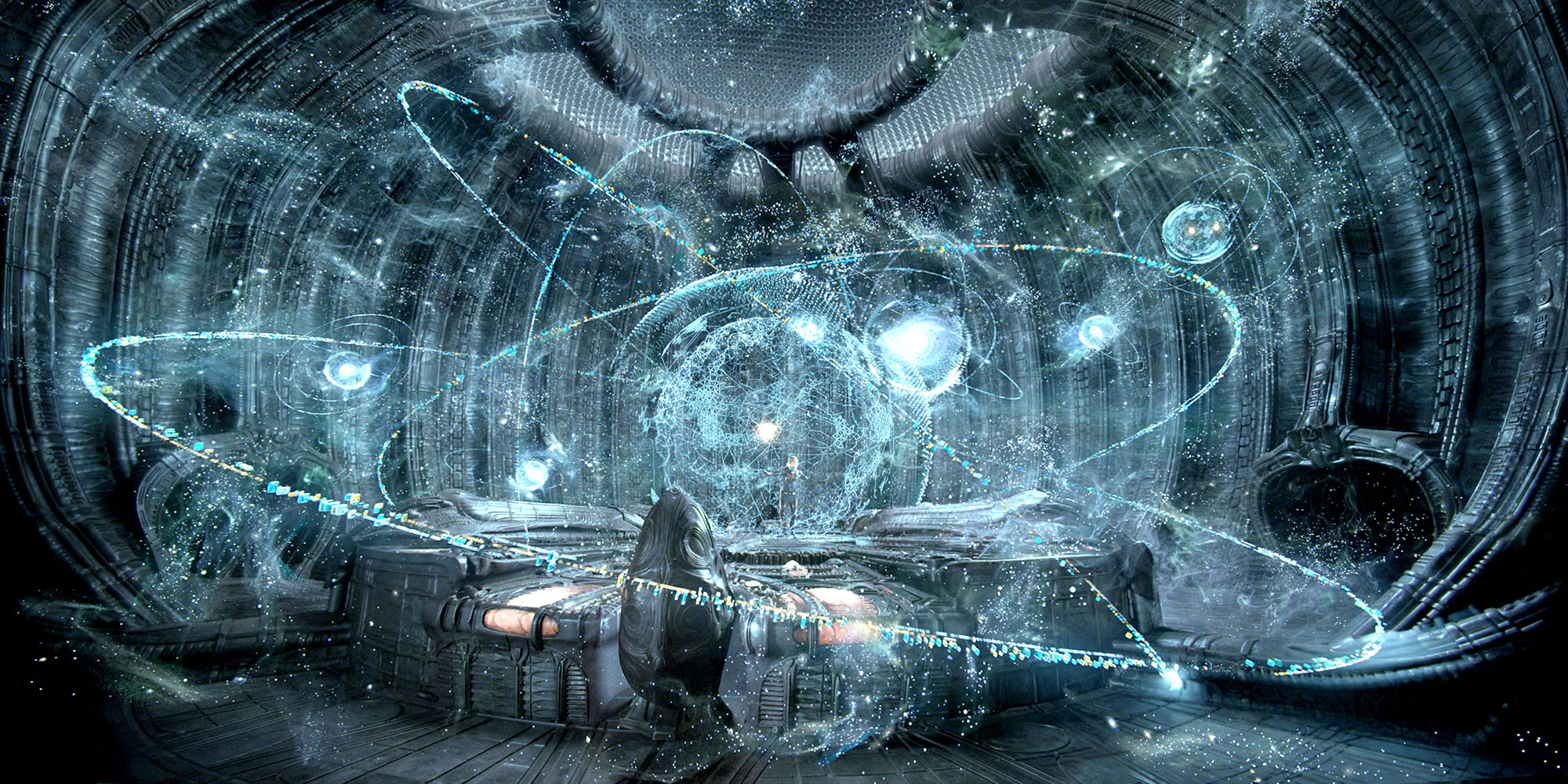
The words that have erupted from the tongues of many industry watchers and workers over the last few months have been “marketing”, “marketing” and “marketing. Hardly surprising since the biggest news on the high-end of the world of movie-making has been the supposed failure of Disney’s John Carter, a movie for which (regardless of its strengths and weaknesses in terms of finding its audience) was let down by what appears to be a research and marketing fiasco. Blogger Claude Brodesser-Akner recently put his spin on the John Carter debacle with this fascinating article regarding what went on behind-the-scenes as Disney attempted to find a way to sell a film which they had relinquished so much control over to the movie’s director (which will probably never happen ever again at that studio). And of course, in case you missed it, there was my own take on the debacle posted last week which you may read here.
Compare that with the marketing for one of the most highly anticipated movies of this year (not withstanding Christopher Nolan’s The Dark Knight Rises): Ridley Scott’s Prometheus presents the world with a barrage of almost nonsensical, but tantalizing images, sounds and story snippets that has very successfully whetted the audience’s appetite for the director’s return to the cinematic genre that he helped shape thirty years ago. And while I totally concede that this is mostly a giddy, fanboy-ish excuse to revel in the hype of the film, in anticipation of its release on June 8, I think it’s worth us taking a step back to admire the fascinating presentation of the film’s marketing campaign and how it draws its target market in for the dark, wet, cold, screaming kill.
If director Sir Ridley Scott intends to leave this world on a high-note then he’s well on-target and still accelerating. Having worked his way through the British film industry as an art-designer and, later, a director of TV commercials, Ridley did not make his first film until the ripe age of 40 and yet his influence on the shape of modern culture is as palpable as the works of the great Renaissance masters.His first claim to cinematic fame – Alien – is heralded as one of the three great movies (alongside the original Star Wars and Kubrick’s 2001: A Space Odyssey) that thrust science-fiction cinema into the mainstream public eye where it has remained to this day. His beautiful (and, at the time, disastrous) film Blade Runner has been lauded by many as one of the most important influences on the modern art, fashion, architecture and culture of the 1980’s. His Roman epic Gladiator single-handedly restarted the world’s obsession with ‘sword-and-sandal’ movies and television shows which are so popular right now. He got the last word on the world before 9/11 by making a film – Black Hawk Down – which dramatized one of the key events in the history of war that has led to the America that we know today and contributed to the eventual terrorist attack on New York. He’s the only Hollywood studio director making blockbuster genre films about the Middle East and the Muslim culture with films like Kingdom Of Heaven and Body Of Lies. Beloved by feminists as one of the very few male directors working, even today, who actively tells stories with female leads (with films like Thelma & Louise, Someone To Watch Over Me and G.I. Jane), Scott also shares acclaim as the progenitor of the term ‘director’s cut’ and, along with his younger brother Tony Scott (director of Top Gun, The Hunger, Enemy Of The State) as one of the filmmakers who taught a whole generation of Hollywood directors that movies can be beautiful as well as entertaining.
Now at the age of 75, a respectable number in years whereby most people would already be dependent on mobility scooters and passing their golden years in some retirement home, Sir Ridley Scott is seemingly living life on the fastest lane possible; pedal to the floor, hands gripped firmly on the wheel, one of his famous Cuban cigars clenched between his teeth and, constantly, making people half his age feel ashamed of their lack of vigor and achievements. Having directed a staggering ten films in the last twelve years, his creative output is exploding like a star reaching critical mass before it goes nova. Glimpse him in red carpet videos or on his sets and this quintessentially English bloke seems to move and think faster than most of the, far younger, people surrounding and working for him. Despite his ups and downs over the 80’s and 90’s with a string of hits and fascinating box-office failures, the 2000’s has seen the director rise and rise again in power and standing with Hollywood and movie audiences, his films of the last decade having grossed almost $2 billion USD total worldwide. And while he’s never won an Oscar, you can be assured that among even your average film-watcher his name evokes more recognition and admiration than 90% of the directors who have been allowed to take the coveted golden statuette home. Ridley continues to work today, at the level that he does, because he has always remained on the forefront of ‘big cinema’, daring to go into the uncomfortable darkness of the metaphorical future a little earlier than those around him and, because of this, he remains influential rather than reactionary.
You could do a lot worse than wish for a life like Ridley Scott’s by the time you reach 75.
To say that Ridley’s return to the genre of science-fiction has been well-received by fans is something of an understatement, but the realization that his new film Prometheus is a return to the same universe that he created (along with writers Dan O’Bannon and Ron Sushett) with his 1979 sci-fi horror movie Alien has been nothing less than an almost religious experience for some. And yet, interestingly, when looking at the marketing presented by 20th Century Fox (for whom the Alien franchise is one of their keystone money-earning properties) it is apparent that the average film-goer would not realize this since the campaign makes no mention of it whatsoever, instead focusing on merits of the film’s story in-of-itself. Whether or not the final film turns out to be any good, looking at the tracking numbers both online and through surveys, it seems that – unlike the disastrous John Carter – this particular marketing campaign is working.
Prometheus has remained much of an enigma so far as the gossip and rumours go. The title refers to the name of the starship piloted by a crew that travel to a distant alien world, drawn there by archeological discoveries on Earth which suggest that an ‘intergalactic invitation’ by some other race that had visited our planet a millennia ago. The name ‘Prometheus’ of course refers to the character from Greek mythology: a legendary Titan who stole the secrets for fire from the hearth on Mount Olympus and gave it to mankind in order for them to advance in industry and technology. For his betrayal to Gods of Olympus, Prometheus was punished by being chained to a rock and plagued by a great eagle who would come every day to tear open his stomach and eat his constantly regenerating liver. How all this fits into the Alien universe is, currently, a mystery and it is that gap in knowledge, expertly controlled by 20th Century Fox who have prevented script and story leaks, that is helping build the anticipation for this film. Ridley Scott tantalizes us with vague descriptions of how the project was started; as an actual in-franchise movie whereby we explored the origins of the so-called ‘Space Jockey’ race who are glimpsed in his original film as the fossilized pilots of the derelict ship that housed the thousands of alien eggs which later played a terrifying role in the original film and James Cameron’s awesome sequel Aliens.
Since then Scott has emphasized that the film only used the concept as the ‘creative DNA’ for the movie and that the final film will be ‘quite separate’ from the Alien series even though it takes place in the same universe (as seen from the glimpses of the Space Jockey creatures and the famous ship in the trailer). What does that actually mean? Who the hell knows? Scott’s team and Fox have done a fantastic job in keeping all the details firmly wrapped and only eking out the information which they want the audience to see. To date interviews and promotional materials have remained tight-lipped on the story and heavily emphasize the rift between this movie and the Alien franchise. Even the Wonder-Con Q&A conference held yesterday which premiered the full-length trailer of the film is a delightful and frustrating dance of wits as director Scott and co-stars Charlize Theron and Michael Fassbender squirm and worm their way out of revealing details on the movie, all the more teasing and exciting the audience. P.T. Barnum would have been proud.
This rather brave tactic of holding one’s cards back is intriguing, especially compared to the marketing campaign of John Carter which was led by its director Andrew Stanton. There is no evidence, as far as I can see, that suggests that Ridley Scott and his team at Scott Free Productions are spear-heading the marketing campaign for this film, but it is not difficult to imagine that amount of restraint exhibited is the work of experienced minds who know how to milk the right amount of intrigue and conspiracy out of their materials and keep the audience gagging for more. Scott himself, in several interviews, has always emphasized his belief that the audience’s intelligence cannot be under-estimated and that the true fight is not about trying to make sure your audience understands what you’re doing, but instead trying to make sure that they get you without you giving away the whole game. He extolls that movie-making is “a game you play with the audience where the filmmaker tries to lead you through a maze and you have to ensure you’re twisting and turning and keeping pace enough that the audience doesn’t find their own way to the finish line before you do”. If this philosophy rings true then Prometheus as a film (with its promise of an original story set in a familiar franchise and universe) and its marketing are exemplary executions of that idea. “People like to be part of the process,” Scott says, “they don’t want to sit back, they want be feel like they’re meeting you halfway. That’s when it’s fun.” For my part, I think he’s 100% correct.
Starting with simple reports about the story as well as casting information on rumour websites like Ain’t It Cool News, Dark Horizons and other sites, the promotional campaign started quiet and simple. Rather than building a website, the film’s primary interface with its audience was via its official Facebook page and Twitter feed. Apart from a handful of updates, the first pieces of genuine fan-buzz creating media hit during the 2011 San Diego Comic-Con International Convention where a rough cut of the film’s first teaser was shown. Leading up to this, Entertainment Weekly built up the fervor by publishing an authorized article about the film which gave the public its first look at the visuals of the film including a chamber which evoked strongly the gothic and morbid art direction of Swiss surrealist H.R. Giger who worked on the original Alien film and designed the famous Xenomorph title creature.
On November 27th 2011, a grainy and difficult-to-see bootleg of the Prometheus teaser trailer was uploaded onto the net. The studio was quick to issue out their condemnation of this act, bemoaning that it spoiled the impact of the teaser, however quite the opposite was true since the pixelated mosaic of dark imagery from the bootleg only heightened fan expectation. As you may have already figured out by now studios are often the instigators of their own leaks when it comes to images and trailers, in an attempt to create a ‘viral buzz’ about the film which certainly worked in this case. Whether or not Fox was responsible for the leak, the appetites for a proper good look at the first moving images from the film were truly whetted and ready for the first teaser to hit.
The teasers and trailers for Prometheus are fascinating both in execution and their, I must say, genuine artistic vision. To really appreciate what you’re looking at you need to see what was, way back in 1979, hailed as one of the greatest film promotional clips of all time: the original trailer for Alien.
I don’t know about you, but if I was in a darkened cinema in 1978 and that came on, I’d probably have to go back out to change my pants. The trailer was put together by the producers and director Ridley Scott which probably accounts for the very unconventional and balls-to-the-artistic-wall nature of the thing. Take note of the erratic and jarring cutting style, the way the film’s title appears across the frame, the music building to a terrifying, noisy crescendo and the distinctive sound design involving an unmistakable, piercing, synthetic whine in the background. It’s interesting once you’ve seen that to take a look at the Prometheus’ teaser:
Once the teaser had hit the net and cinemas, the real promotional engine of the film kicked into first gear. Within a short time, an in-universe website was launched for Weyland Industries: a mysterious mega-corporation embroiled in the events of the film and, quite possibly, the first half of the namesake of Weyland-Yutani, the cold and insidious ‘Company’ featured as a puppet-master-like force in Scott’s Alien, James Cameron’s Aliens and David Fincher’s Alien3. The launch of the website (go here: https://www.weylandindustries.com/) coincided with a viral video, directed by Ridley’s son and music video director Jake Scott, of the company’s founder Peter Weyland (played by Guy Pierce) giving a fictional talk at the real-world TED Conference in the year 2023 where he hints at his visions for the future:
From that point onwards, the campaign has been a steady feed of carefully measured images, press-statements and video clips. Although lambasted for it in the past, Fox resurrected the idea of making ‘teasers for trailers’ whereby they would post 30 second or less short glimpses at upcoming full-length trailers. A series of these were released (seen here and here). While it is something that doesn’t happen often, creating a buzz or hype around the release for a trailer is a smart and successful tactic when a film has the tracking numbers and online following as Prometheus. Other studios of course do things differently; Warner Bros and MGM’s handling of the release of The Hobbit has placed more emphasis on giving the audience a back-stage peek of the process of the film in order to build a sense of hype via Peter Jackson’s excellent video blogs rather than tease and tantalize with fleeting glimpses and mysterious promises. But since the mystery element is so much part of the experience of Prometheus, it is by far a better way of developing public interest and creating a ‘sense of mood’ with which each audience member can take into the cinema with them as a primer for crossing into the world of the film in a much easier manner. And since this strategy also worked in spades for Fox’s last megahit AVATAR which also had a similar level of hype and demand for footage by its target market, it seems sensible to repeat the formula. Fox culminated their ‘campaign to promote the trailer’ with a mini-version of what they refer to as ‘Prometheus-Day’, inspired no doubt by the extremely successful global ‘AVATAR-Day’ held back in 2009. This day involved the release of a number of video material including a brand new IMAX trailer:
And a new viral video from Weyland Industries which features a mysterious robot called David-8 which appears to be the fore-runner to the robots Ash and Bishop from Alien and Aliens. The robot in the viral video (and in the film) is played by Michael Fassbender.
And of course all of these are mere teases, yet again, to the main event that the entire publicity campaign of Prometheus has been building up towards – the first full length trailer:
You’ve gotta admit, that’s a pretty freakin’ cool trailer. Word in the industry is that the trailer cutter – who is apparently only 19 years old – has been getting some very high-class kudos over the last day or so. New Zealand editors and producers should especially take note since we are a nation of terrible movie-trailer makers and there’s a lot to be learned in this artform.
All that aside, the release of this first full-length trailer marks the point at which the promotional campaign for Prometheus is now going to shift into second gear. With two months left before the premiere and release, we can expect to see a stronger presence regardless of which country you are living in. Since this promotional clip focuses on the conceit of the film (i.e. what are the characters trying to do), there will no doubt be one or two more full-length trailers focused around the characters relationships in the film or possibly more about the planet and the mysterious Space Jockeys or maybe it’ll revolve more around the technology angle or possibly the horror elements. If there is a strong romance storyline then there will probably be a trailer that focuses more on that as well. All of this will be supported by a very expensive print campaign both online (web ads and articles) as well as on posters, billboards, magazines, newspapers and other media.
In addition to this, you can expect a greater presence in the media of Ridley Scott and the cast and crew of the film giving the usual slew of interviews and letting slip tidbits. There will be tie-in promotions with cross-market products (though less so than your average event film since this is science-fiction and a scary movie so no Happy Meals thankfully) and international events timed to coincide with the release (for instance a midnight screening or perhaps a double-feature with Scott’s original Alien?) and so on and so forth. We can certainly expect more from the Weyland Industries website and their viral campaign which will drip-feed us more plot details about the Prometheus mission and the backstory on how and why our intrepid characters end up on the alien planet. There may also a brief ARG or Alternate-Reality-Game where clues, rewards and fan-events are organized by seeding the real world (as in the actual real world where you and I live) with dramatic events, secrets and objects (both online and in real life). Some of the more famous ARG campaigns (most of which, but not all, focus on puzzle-solving on the Internet and visiting real locations around the US/world) include ones for the game ‘Halo 2’ (I Love Bees), the Nine Inch Nails album ‘Year Zero’ (Year Zero) and for the movie The Dark Knight (Why So Serious?).
Ultimately none of this really matters if the marketing isn’t bulls-eyeing the target demographic of audiences who are, convinced by what they’re seeing, going to turn up and cough up their cash to see the movie (and/or buy/rent the DVD/Blu-Ray/VOD later). The specific numbers are not fully available to the public, but reports from various publications indicate that Fox, Scott Free Productions and their various subsidiaries who are behind this campaign have – in fact – nailed their target. This blog post is arguably an indicator, here I am inadvertently spreading their excellent hype-building products to you all the while commentating on how they work.
Unless something truly goes pear-shaped between now and June, Prometheus is probably set to make a lot of money. And given who’s directing the film, the credentials of the producers onboard the project and the genuinely classy, seemingly carefree and fun promotional campaign pushing the film (and not pushing it too hard by confidently keeping many cards up their sleeves), it seems likely that the movie won’t outright suck either. All up, this may end up being a careful and financially successful campaign for Fox Studios and another feather in Ridley Scott’s cap, and that’s a nice thing considering how much I complain about how crappy Hollywood has been of late.
Prometheus opens on June 8th in 2D, Real-D and IMAX 3D. The film was photographed in stereoscopic 3D on RED Epic cameras and is the first time Ridley Scott has made a film using either technique.
EDIT: Looks like I spoke too soon! Here’s another trailer just released a few hours ago, this time more focused on the story and the setup.
